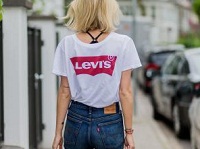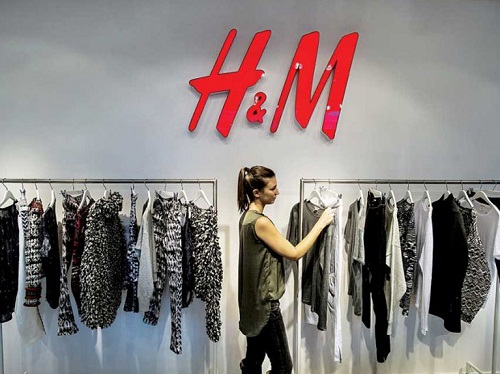"Young consumers today are concerned about social and environmental causes that are defining issues of our times. They support their beliefs by favoring brands aligned to their values. Studies indicate nine out of 10 GenZ consumers feel companies have a responsibility to address environmental and social issues. However, this concern about environmental and social issues is not restricted to younger consumers alone. Around two-thirds consumers worldwide would switch, avoid, or boycott brands that do not agree with their stance on controversial issues."
Young consumers today are concerned about social and environmental causes that are defining issues of our times. They support their beliefs by favoring brands aligned to their values. Studies indicate nine out of 10 GenZ consumers feel companies have a responsibility to address environmental and social issues. However, this concern about environmental and social issues is not restricted to younger consumers alone. Around two-thirds consumers worldwide would switch, avoid, or boycott brands that do not agree with their stance on controversial issues.
Trend towards making principled purchases
 Over the past three years, one third consumers worldwide have incorporated principled views and values in their purchasing decisions. Fashion companies are becoming alert to injustice in society. Brands and retailers, including Levi’s and Nike have taken a clear stance on social issues in recent months. Nike supporting Colin Kaepernick, the face of the NFL’s “anthem protests,” and Levi’s fronting a campaign against gun violence. Gucci has also supported that cause, supporting a student-led march calling for more gun control.
Over the past three years, one third consumers worldwide have incorporated principled views and values in their purchasing decisions. Fashion companies are becoming alert to injustice in society. Brands and retailers, including Levi’s and Nike have taken a clear stance on social issues in recent months. Nike supporting Colin Kaepernick, the face of the NFL’s “anthem protests,” and Levi’s fronting a campaign against gun violence. Gucci has also supported that cause, supporting a student-led march calling for more gun control.
Some fashion players have attached collections and ranges to specific causes. For example, H&M launched a Pride collection in 2018 in support of the LGBTQ+ community, and Balenciaga collaborated with World Food Programme, donning its slogan, “Saving Lives, Changing Lives”.
Increase in B-certified corporations
There are growing number of B-Corporations, which are certified to have considered the impact of their decisions on people, society, and the planet (exhibit). Companies including Ben & Jerry’s, Danone, and Patagonia are B-certified. In the fashion, apparel, and beauty sector, the number of B-corps rose to nearly 200 by April 2018, compared with just seven in 2010.
Notably, environmentally and socially focused companies are considered by younger cohorts as better prospects for employers, and they would be more loyal to companies that are aligned with those values.
Identifying ‘real’ from ‘fake’
However, not all causes that fashion brands advocate are universally popular, and these can come with significant risks. The NFL “anthem protest” was a divisive issue in the United States, creating a mixture of applause and backlash for Nike. Still, it created earned media exposure worth more than $163 million, within just days of the campaign launch. Besides potential controversy from supporting divisive causes, brands may also risk being perceived as hypocritical if they do not carefully ensure consistency in their messages and actions.
NFL “anthem protest” was a divisive issue in the United States, creating a mixture of applause and backlash for Nike. Still, it created earned media exposure worth more than $163 million, within just days of the campaign launch. Besides potential controversy from supporting divisive causes, brands may also risk being perceived as hypocritical if they do not carefully ensure consistency in their messages and actions.
Another reason brand alignment with causes can backfire is that discerning consumers can easily spot the difference between gimmicks and a genuine purpose that aligns with the values of the organization. Companies can expect consumers to closely examine the level of continuity across campaigns and the nature of their strategic and operational decisions, as well as their tone.
More consumers to increase commitment levels
While consumers in Western markets currently tend to dominate the movement towards environmental and social conscience this is likely to change. In future, a rising number of consumers in other markets will increase their levels of commitment.
Despite many associated risks, some large brands willingly court controversies to express beliefs, particularly luxury players, which attract younger consumer groups. And while expression of controversial views may deter some, loyalty rewarded by remaining customers matters more.












